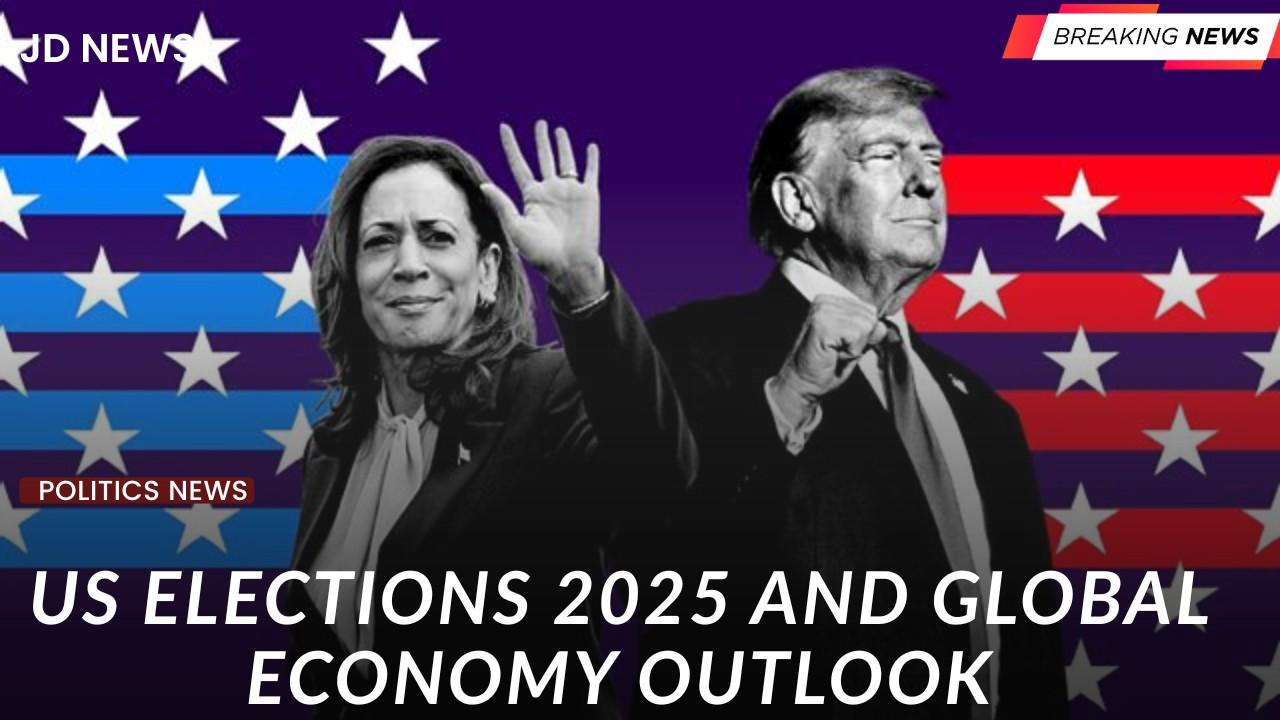US Presidential Elections 2025: What’s Next for Global Economy?

The 2025 US Presidential Elections are more than just a political watershed moment for the United States; they are also a worldwide event. As the world's largest economy prepares for one of its most carefully watched elections, financial markets, governments, and investors around the world are bracing for potential changes. The next US president's actions will have a direct impact on global commerce, energy markets, international security, technological regulation, and climate agreements. The results of this election could reshape partnerships, rivalry, and economic prospects in countries such as India, China, and the European Union.
Stakes are high. Rising inflation, shifting supply chains, technical competition, and geopolitical conflicts have already led to an unpredictable global environment. Against this context, the US elections have the potential to either stabilise markets or cause new turbulence. Let's go deeper into what the 2025 US Presidential Elections could signify for the global economy and why the globe is so interested.
The US as the Global Economic Anchor
The United States remains the world's largest economy, accounting for approximately 25% of global GDP. The country's policies affect not only Wall Street, but also stock exchanges in Asia, Europe, and emerging markets. The dollar's strength, US interest rates, and Federal Reserve policies all have an impact on everything from Middle Eastern oil prices to foreign investment in India. Because of this prominent role, any shift in American leadership or economic orientation will undoubtedly have a global impact.
For global corporations, the US election is more than just a domestic problem; it might signal a new beginning for worldwide trade and finance. A change in administration could result in changes to tariff policies, military strategies, and diplomatic ties, all of which have an impact on global stability and economic growth.
Trade Policies and Supply Chain Shifts
Trade is one of the most important issues being discussed. Over the last decade, US trade policy have shifted dramatically, from tariffs on Chinese exports to a renewed interest in improving connections with Asian allies. The next US president's stance will determine whether global supply chains stabilise or experience more upheavals.
If protectionist policies continue, developing economies that rely on US markets may encounter difficulties, whereas those that adapt swiftly may enjoy new chances. A multilateralist leadership, on the other hand, may reduce trade friction, enhance the World Trade Organisation (WTO), and promote smoother global trade.
Impact on India and Emerging Economies
For India, the outcome of the US elections could present both chances and risks. Improved relations with Washington might boost India's IT sector, defence linkages, and renewable energy cooperation. At the same time, tougher visa requirements or protectionist trade barriers may affect outsourcing and skilled migration.
Emerging economies in Asia, Africa, and Latin America are keeping a careful eye on things. Many of these countries rely largely on US investment and remittances. The future path of US foreign aid and climate spending may determine the rate of progress.
The Dollar, Interest Rates, and Global Markets
The US dollar continues to be the world's reserve currency. Any changes to fiscal or monetary policy following the elections will have an impact on global currency exchange rates. If the next administration pushes for more government spending, inflationary pressures may increase, leading the Federal Reserve to raise interest rates. This would affect borrowing costs around the world.
Stock markets, too, are extremely susceptible to US political happenings. Investors are already positioning themselves depending on potential outcomes, with sectors such as energy, defence, and technology most exposed to policy changes. As a result, the election results continue to be inextricably linked to the global financial system.
Climate, Energy, and Technology: The Next Frontiers
Beyond trade and markets, the 2025 elections will also determine the speed of global climate action. A leader who prioritises renewable energy could expedite global green measures, but a more conservative attitude could hinder international climate agreements. Energy-importing countries, such as India, who rely on stable oil and petrol prices, will keenly monitor these developments.
In technology, the United States stays at the forefront of innovation and regulation. Policies governing artificial intelligence, data privacy, and semiconductor supply chains will have a worldwide impact. The next president's strategy may either increase America's technological leadership or allow other countries to play a larger role.
Why the World Cannot Ignore This Election
The global economy has never been more intertwined. Whether through trade agreements, financial markets, or international diplomacy, the United States continues to set the standard. The 2025 elections are much more than just who will govern America; they are about determining the next phase of globalisation.
For average people around the world, this might have an impact on jobs, inflation, gasoline prices, and even climate resilience. For firms and governments, it might reshape policies and alliances for years to come. The conclusion will either strengthen America's global leadership or open up new opportunities for emerging nations to determine the future economic order.
Conclusion
As the globe awaits the results of the 2025 US Presidential Elections, the central question remains: what route will the global economy take? Will the markets experience stability and fresh alliances, or will volatility and trade battles return? The impact of the American election will be felt globally, from New Delhi to London, Beijing to São Paulo, regardless of the final conclusion.
India and other rising economies would have the task of adapting swiftly and aligning their strategy with whatever course the US takes. One thing is certain: the world cannot afford to ignore this election, as the repercussions will determine the future of global trade, investment, and diplomacy.